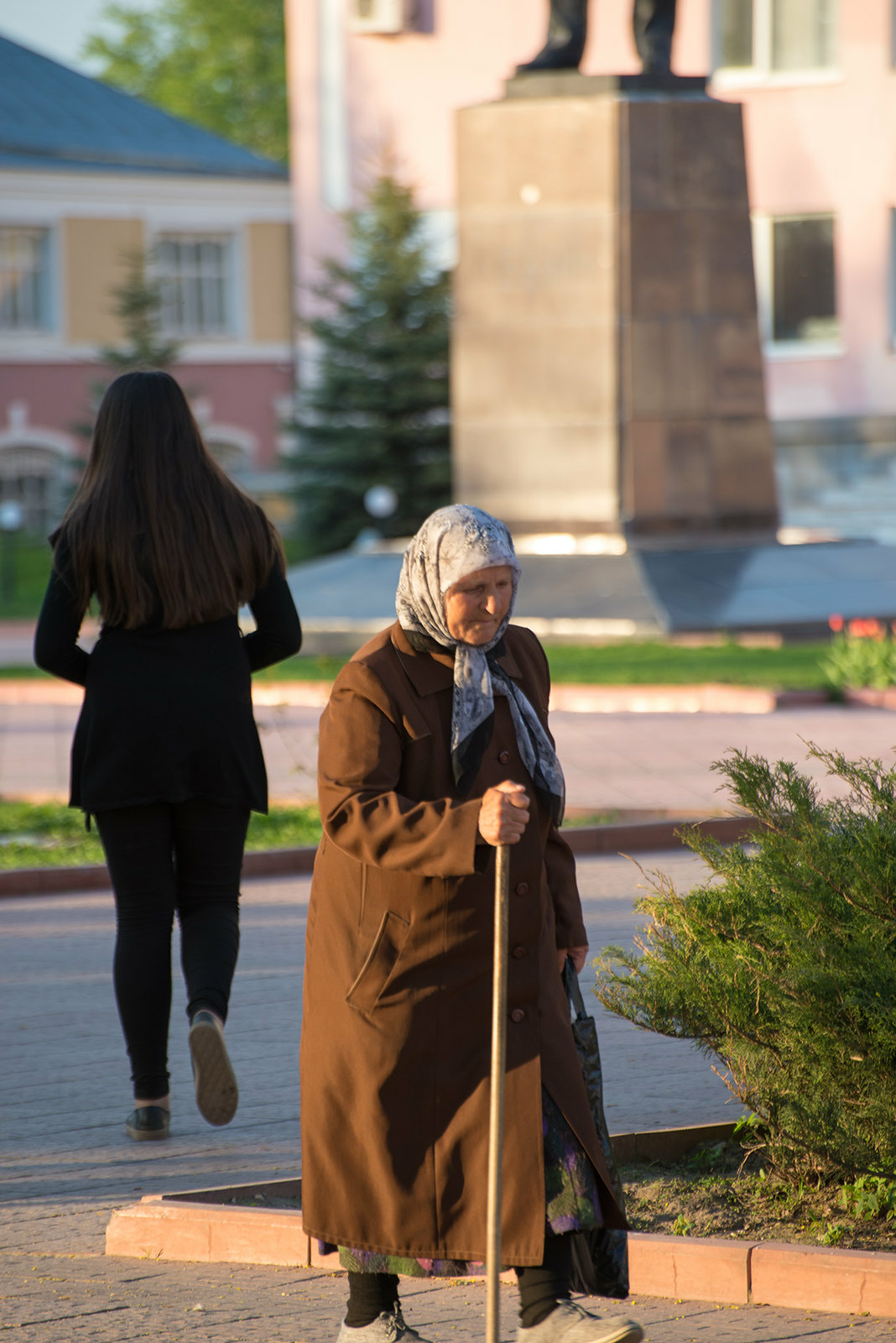What is the Role of Spirituality
in an Ecological Civilization?
Jay McDaniel, PhD
Professor Emeritus, Hendrix College, Arkansas
Director, Center for Process Spirituality
Advisory Board, Center for Process Studies
|
The fundamental building blocks of an ecological civilization will be local communities that are creative, compassionate, participatory, humane to animals, good for the earth, and spiritually satisfying, with no one left behind. Citizens will know that they are included in a larger whole, the web of life itself. Indeed, they will feel a sense of loyalty to the life itself even as they are also loyal to their communities and their nations. But they will also know that they belong to one another, caring for each other. And amid their belonging they will enjoy a sense of fulfillment as individuals. They may or may not be religious, but they will partake of a sense of wonder and beauty, a love of life and a curiosity about the world, kindness and creativity. They will feel alive.
If you put these various qualities together – care for one another, a feeling of connectedness with the larger web of life, a sense of wonder and beauty, curiosity about and a love of life, kindness and creativity – you have aspects of what, in this essay, I mean by “positive spirituality” or, alternatively, “constructive postmodern spirituality.” It is a feeling, not only of surviving day to day, but of being alive. Spirituality is the activity of feeling and being alive in daily life in ways that are wise, compassionate, and creative. A question emerges: How might spirituality of this sort be studied academically even as it might be also be practiced by ordinary people in local settings, helping them find happiness in daily life and contribute to the good of their communities? Fortunately, an answer is emerging in our time -- so much from philosophy as from the natural and social sciences. Psychologists today are developing two fields of research that speak to what we can mean by spirituality. One is positive psychology, which studies the role that positive states of mind and traits of character play in helping people become healthy: happiness, love, openness to others, gratitude.[i] The other is emotional intelligence theory, which studies the way that people understand and manage their own emotions and understand the emotions of others.[ii] Complementary to this work in cognitive science, which shows that mental (cognitive) states of mind are inseparable from emotional states, bodily experiences, and social environments. We can speak of this "embodied mind" theory.[iii] And complementary to these three sources is a study by the 250 year old London-based think tank -- the Royal Society of the Arts (of which Karl Marx was a member) -- which takes these sources, along with others, and offers an intellectually robust, politically relevant, interdisciplinary understanding of spirituality for the religious and non-religious alike: "Spiritualize: Revitalizing Spirituality to Address 21st Century Challenges."[iv] It we put these developments together -- positive psychology, emotional intelligence theory, and embodied mind theory -- we can begin to imagine an inter-disciplinary field of inquiry, analogous to Positive Psychology, that we might call Positive Spirituality or, alternatively, Constructive Postmodern Spirituality. There could even be a department in the university by that name, and its faculty would include psychologists, neuroscientists, sociologists, anthropologists, philosophers, and religious studies scholars. This field would study the particular states and traits that have been considered "spiritually significant" in the many cultures of the world, seeing how they might contribute to the well-being of individuals and societies in an ecological civilization. It would have two divisions, not sharply divided: Theoretical Positive Spirituality and Applied Positive Spirituality. The latter would explore applications of Positive Spirituality in early childhood education, family life, hospitals and health care, prisons, village and urban life. So what states and traits can be studied? Fortunately, there is an answer to this question, too. We can turn the field work of Frederic and Mary Ann Brussat of Spirituality and Practice[v], who have organized the world's most comprehensive list of moods, modes, and practices that have been considered spiritually significant by the many cultures of the world. They call this list "the spiritual alphabet."[vi] They have described each of the "letters" of the alphabet in a fair amount of depth on their website, but they can be listed here: Attention -- Beauty -- Being Present -- Compassion -- Connections -- Devotion -- Enthusiasm -- Faith -- Forgiveness -- Grace -- Gratitude -- Hope -- Hospitality -- Imagination -- Joy -- Justice -- Kindness -- Listening -- Love -- Meaning -- Nurturing -- Openness -- Peace -- Play -- Questing -- Reverence -- Shadow -- Silence -- Teachers -- Transformation -- Unity -- Vision -- Wonder -- X (the Mystery) -- Yearning -- You -- Zeal (zest for life). The list is by no means exhaustive, and more than be added, but it provides an excellent starting point for an emerging field of Positive Spirituality. My suggestion, then, is that the Brussats offer content for what is studied in the emerging field of Positive Spirituality. Their work is important for three reasons: (1) They present a wide range of 'spiritually significant emotions' that are found in many cultures around the world; (2) they identify a range of practices that can be adopted by people of different cultures; (3) they link their work with the humanities (literature, film, and music) in ways that bring a 'human' dimension into considerations of positive spirituality. Contribution from Process (Constructive Postmodern) Philosophy So far I have identified five sources for Constructive Postmodern Spirituality: positive psychology, emotional intelligence theory and practice, cognitive science, the RSA attempt to develop a notion of spirituality that is publicly available, and the pioneering work of Frederick and Mary Ann Brussat in Spirituality and Practice. Taken together they provide a provisional definition of spirituality for an ecological age. Positive Spirituality is a combination of emotional intelligence and embodied cognition that can be practiced by people from different cultures and religions and that includes (at least) thirty-seven qualities of heart and mind -- forms of relatedenss -- that contribute to the flourishing of life. The Value of Process Philosophy What, then, can process (constructive postmodern) philosophy add? Four things: It adds a cosmology that lends support to all that has just been said. While none of the above derives from process philosophy, much of it can be interpreted and appreciated by process philosophy, lending a cosmological framework for appreciating positive psychology, emotional intelligence, embodied cognition, and, with its emphasis on the subjective side of life, the Brussat’s spiritual alphabet. Many of the elements of the alphabet, for example, are part of Whitehead means by “subjective forms,” which are part of any and every act of experiencing, whether physical or mental. And a Whiteheadian approach will add, as do the Brussats, that these subjective forms can be communicated through the arts and practiced by means of physical activities: Tai ji, gardening, prayer, craft-making, journaling, archery, seated meditation, singing. It adds a social vision that might otherwise be lacking in discussions of spirituality. Often common parlance on “spirituality” focuses primarily on what is inside a person: emotions and attitudes that might lead to happiness and peace of mind at an individual level, and perhaps facilitate meaningful social interaction among friends, in the family, and at the workplace. But some discussions of spirituality wrongly neglect the fact that individual happiness alone, and meaningful personal relations alone, do not exhaust the purposes of spirituality. A genuine spirituality is interested in a whole world, not just whole people, and it takes questions of justice very seriously. Process philosophy adds this. Process philosophy also adds an unfettered inclusion of the more-than-human world – nature – in discussions of spirituality. In the first place it recognizes the role that hills and rivers, trees and stars play in eliciting and evoking the many spiritual moods adumbrated by the Brussats. Not only reverence for nature, but also imagination and play and wonder and a sense of mystery, are evoked by the more than human world itself. Nature becomes a teacher and a guide. In the second place, process philosophy reminds us that the ethical virtues of the spiritual alphabet – compassion and kindness and justice – rightly extend to nature itself, so that we speak of compassion for animals and justice for other species and the earth. Finally, process philosophy offers a reminder that spirituality as such is not enough. It is part of the equation needed for a vibrant ecological civilization, but there is also a need for sustainable engineering, sustainable accounting, sustainable forestry, sustainable urban design, sustainable politics, sustainable economics. These many forms of sustainability cannot arise by spirituality alone. They emerge from hard thinking and rational analysis, scientific inquiry and practical application, among people whose lives include, but are more than, emotional intelligence and embodied cognition. What the world really needs today are people interested in the whole of life: head, hands, and heart. Spirituality speaks to the heart, but needs the hands and the head. The three together form a triad of hope for the world. My aim in this essay is to speak to one part of the triad. May the other two flourish as well. [i] Positive Psychology Center at the University of Pennsylvania [ii] Yale Center for Emotional Intelligence: http://ei.yale.edu/. [iii] See, for example, The Embodied Mind: Cognitive Science and the Human Experience (MIT Press), linking science and Buddhist practices.[v] https://www.spiritualityandpractice.com/ |























